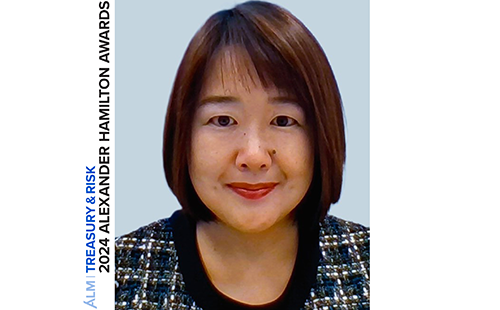Last year, the state of Maryland had more than $200 million on deposit in a Citigroup account that was fully insured by the Federal Deposit Insurance Corp. and that paid 50 basis points. "It was an extremely wise investment," says Mary Christine Jackman, the state's director of investments. Then Citi, like most big banks, opted out of the unlimited FDIC coverage. Jackman immediately pulled the money and invested it in things like Treasuries, agencies and repos.
"Without the insurance, it was no longer attractive," she says. "The whole point was getting the insurance." Making sure investments are insured or guaranteed is one reason Maryland has a triple-A rating, she points out.
Beginning in October 2008, the FDIC's transaction account guarantee, or TAG, program, insured the full amount in accounts, rather than just the $250,000 normally covered. Last year, TAG was extended through this June, but more than 3,100 banks have opted out, including Bank of America, Bank of New York Mellon, Citigroup, HSBC, JPMorgan Chase, PNC, SunTrust, USBank and Wells Fargo. Comerica and KeyBank had not opted out at press time.
Recommended For You
"This is a huge issue for corporations," says Dave Robertson, a partner at consultancy Treasury Strategies in Chicago. "As most banks opt out, depositors go from full protection by the U.S. government to direct counterparty risk with their banks, very few of which are rated above A. That's quite a drop-off."
It's a drop-off that could put a company in violation of policies that limit individual credit exposures, Robertson notes, since uninsured bank deposits now count as a credit exposure under many corporate policies.
If custodial risk and settlement risk are included, companies' exposure gets even worse. "A company may want to limit its maximum exposure to any single counterparty to $40 million, but it may have a lockbox where on the peak day, $250 million clears," Robertson says. "Even though the funds may be moved to a government security at end of day, that company could lose up to $250 million if the bank failed during the day."
Unlimited FDIC insurance on corporate accounts had provided cash managers with "a worry-free vehicle," says Ben Campbell, CEO of Capital Advisors Group in Newton, Mass. "Now that it's going away, we've had inquiries about the alternatives. I've talked with treasurers who had billions of dollars in FDIC-insured accounts."
The choices are limited. Some money is trickling back into prime money funds. Some is staying in bank accounts for now. Some is going into short-term corporate notes, particularly bank issues, now that banks are perceived to be out of immediate peril.
"Cash investors are returning to the old menu, but the landscape has changed," Campbell says. "People don't lump prime money funds together as one alternative but look more carefully at their different risk profiles."
The money is not going into Treasuries, given the very low rates, Campbell says. "There's more interest in the return. Investors are cautiously engaging in risk again."
Lee Epstein, CEO of Decision Analytics in San Francisco, suggests keeping money in uninsured accounts when the earnings credit rate (ECR) is worth more than the yields on most cash investments is not so risky.
"When the banking industry looked like it was collapsing, everyone wanted the full faith and credit of the U.S. government to protect them, but things have improved," Epstein points out.
The banks only opted out of TAG after checking with their big customers, he reports, and while some investors pulled money out of banks that opted out of TAG, most stayed. "The implied insurance is still there," Epstein says. "The government has shown that it will support the banks. They are too big to fail."
Keeping cash on deposit in banks has been rewarding because the ECR that banks credit against fees the company would otherwise pay with cash was worth more than companies could make by investing in safe, liquid securities, he reports.
When rates go up, will banks increase their ECRs to compete? "Probably not," Epstein says. Meanwhile, no new products like auction-rate securities have emerged to tempt investors with higher yields, he says.
Companies can still keep money on deposit in banks, earn interest and be fully protected by FDIC insurance, though, thanks to a product that has spread from wealthy individuals to corporate cash investors. For example, USA Mutuals Partners in Dallas offers a currently insured product, the Insured Cash Shelter Account, for up to $10 million per tax ID, that was paying 40 basis points at press time, reports Eric Lansky, the company's president.
The accounts place cash in $250,000 increments in bank money-market accounts, says Brandon Semilof, managing director at Vanderbilt Avenue Asset Management in New York City. "It's like creating your own money-market fund. You own the instruments. You're not part of a pool and can't be adversely affected by other investors." The instruments earn whatever variable rate banks are paying on money-market accounts, typically under 50 basis points.
"These accounts are generating a lot of interest," Semilof says.
Christopher Turoci, a managing director at C.K. Cooper & Co. in Irvine, Calif., also sells dispersed FDIC-insured deposits. "It has been a real focus here, our product of choice for this market," he says. Up to $30 million can be spread around; all of it is insured, and the product was paying a variable, blended rate of 45 basis points at press time.
Clients are pulling money out of Treasury funds to move to the new accounts, Turoci says. "They were only getting 11 basis points, and we offer much more with daily liquidity and FDIC insurance."
Maryland's Jackman finds the idea of spreading money around in less-than-$250,000 increments to keep deposit insurance "a total waste of time." Lansky counters that it doesn't take much time if you use a broker.
The allure of keeping cash safe for practically no return is fading. "At one point during the crisis, we moved cash into FDIC-insured bank accounts, but that would not be right for us now," says James Haddad, vice president of finance at San Jose, Calif.-based Cadence Design Systems. Cadence has about $500 million in invested cash. "We have to be yield-conscious and make a reasonable return on our investments," he says. "That means taking some risk. A chimp could do FDIC placements."
But beware of money funds, because the exit could be messy when rates rise, Lansky warns.
"With nearly 70% of the money in funds belonging to institutional investors, according to the [Investment Company Institute], a rate increase would put incredible pressure on money funds," he says. "Treasurers who use them should have a plan B."
© 2025 ALM Global, LLC, All Rights Reserved. Request academic re-use from www.copyright.com. All other uses, submit a request to [email protected]. For more information visit Asset & Logo Licensing.




